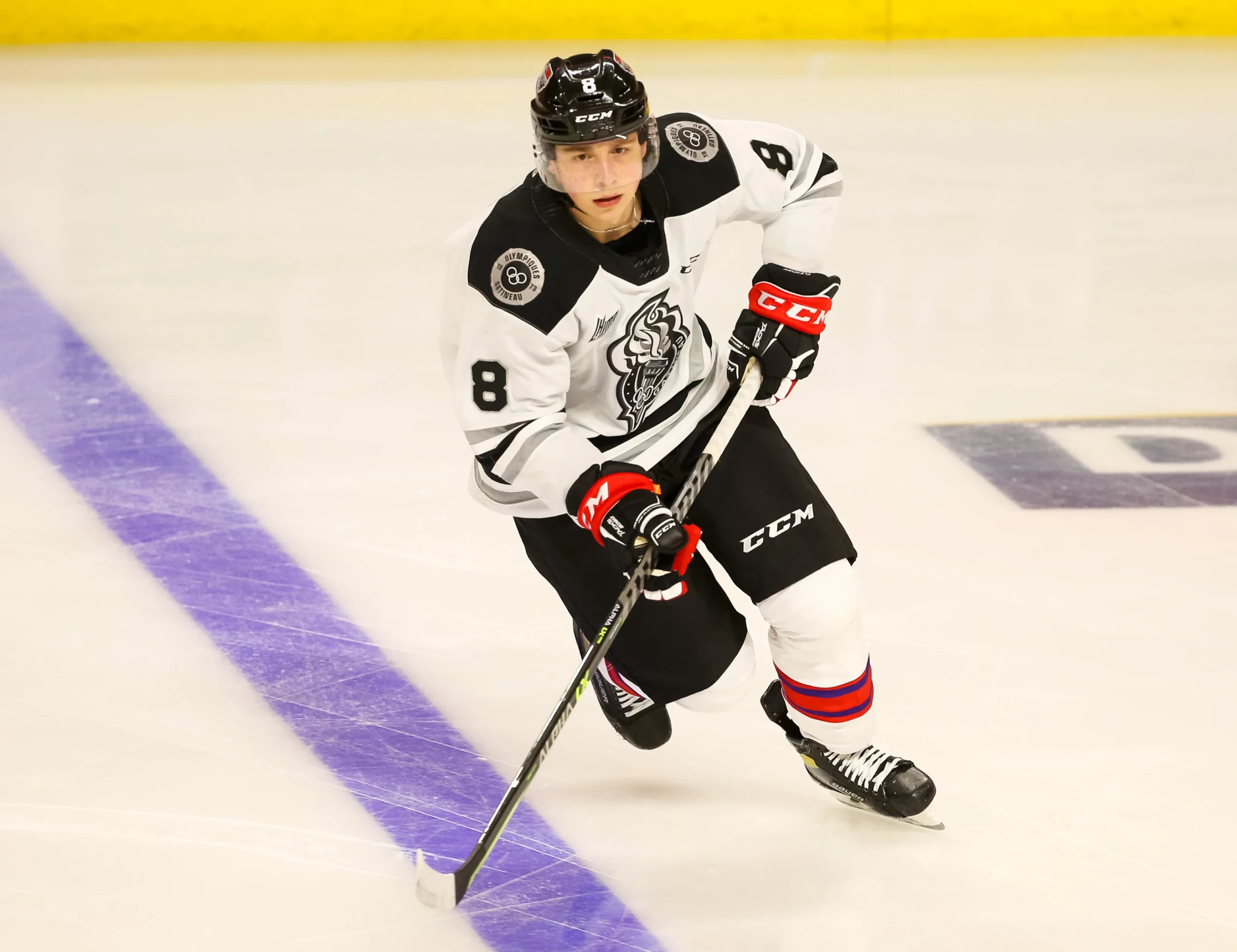In a closely contested 3-1 victory at Vancouver’s Rogers Arena last night (Nov. 28), the Vancouver Canucks handed the Anaheim Ducks their seventh consecutive loss.
The Ducks’ first game of a brief stretch of games will tell us a lot about their resolve and capacity for perseverance in the face of adversity.
I think the Ducks delivered in many aspects. Although they were not victorious, they were competitive, held the powerful Canucks to just two non-empty net goals, and were right there at the end—exactly what supporters had hoped for following a disappointing loss. They also played with greater skill and intensity than they did against the Edmonton Oilers on November 26. Let’s examine some key conclusions.
Positive: For forty minutes, the Ducks carried the play.
A thorough offensive effort has been lacking during the current losing run. Here, the top line is highlighted, but the bottom six lines have also been having difficulty.
Yes, last night all four lines were in use. After a brilliant, puck-moving power play, Ryan Strome scored his third goal of the season to put the team back on the scoreboard. Eight shots on goal were on goal for Frank Vatrano, three for Mason McTavish, and seven shots and chances were produced by the top line, which was again made up of Alex Killorn, Adam Henrique, and Troy Terry (instead of Leo Carlsson). A few strong shifts were also put in by the forwards in the bottom six, most notably Sam Carrick, Ross Johnston, and Brock McGinn.
The Canucks’ best players, who preferred to have the puck in their hands to create plays, were less effective as a result of the team’s collective effort forcing them to play defense. In the coming stretch, more of the same will be needed against offensively-oriented teams.
Negative: There Was Little to Show For It
It is obviously disappointing to not have more goals after such a strong play stretch. Although the Ducks did a good job of keeping Vancouver at bay for the first two periods, you still need to put in the effort to win. They had the Canucks, one of the few genuine Stanley Cup contenders, in a tight spot, and when you have teams in those situations, you have to shut them down. Ideally, you should be able to get up a goal or two after that dominant stretch. Regretfully, the Ducks chose not to do that.
They finished 40 minutes of action tied 1-1 despite outhitting, out-possessing, and outshooting (27-12) the Canucks. Thatcher Demko kept his team in the game and handled pretty much everything the Ducks threw at him. The Ducks hit many posts throughout the game, too, which bears mentioning.
Positive: The youthful defense plays a major role.
In the Oilers’ defeat, nobody performed well, particularly on defense. It was much better last night. I stated that the unit’s composition could differ significantly, and it did. Due to an injury, Tristan Luneau replaced Radko Gudas in the game, and Ilya Lybushkin missed the final two periods of play after getting hurt in the first period.
For the remaining five blueliners—Cam Fowler, Luneau, Pavel Mintyukov, Jackson LaCombe, and Urho Vaakanainen—that meant big minutes and a challenging assignment. Fowler had the fastest ice time, 29:56, followed by Mintyukov (22:11), LaCombe (23:22), Vaakanainen (18:55), and Luneau (16:16). Together with the offense, this group slowed down the highly regarded Canucks’ attack, restricted the quantity and quality of their shots, and played with a control that was nonexistent just a few days earlier. The Canucks never really looked like they were going to take the game away, even in the third period when they outshot the Ducks 15–4. The course of the game might have been different if John Gibson hadn’t made a regrettable error in judgment that caused him to become sidetracked during the game-winning goal.
Positive: The Special Teams game was outstanding.
To maintain their winning streak, the Ducks scored on one of their three power play opportunities. They also effectively ended every Canucks power play (their empty net goal came during a power play). As we’ve stated time and time again, having the upper hand in the special teams battle typically indicates success. Although the Ducks’ game plan didn’t work out as planned, their special teams still performed admirably.
When the Ducks had a man advantage, they attacked first and frequently. McTavish and Killorn were positioned close to the goal line and received passes from the half wall in two different but nearly identical sequences. Both of them went after the crease and made shots on goal. McTavish lifted the puck impressively from in close, only to hit the crossbar. The Ducks need to play with an aggressiveness that inspires confidence, like this. Good things can happen as long as the puck is on net or close to the goal crease. I hope it’s a precursor of things to come.
Despite not winning any standings points, it was a good response
There were many positive aspects of the performance, even though the losing streak did not end. Though the Canucks lead the NHL in both goals scored and goal differential, the Ducks shouldn’t be overly concerned with consolation wins. They have some of the most offensively talented players in the game right now and are tied for second place in standings points with 31. Still, the Ducks controlled play for much of the contest, forcing the Canucks to work for every puck and square inch of ice.
Even though it is never pleasant to lose, such a performance will help them defeat many opponents and should instill some confidence before their game against the Washington Capitals on Thursday, Nov. 30. Puck drop at Honda Center is at 7:00 p.m.
